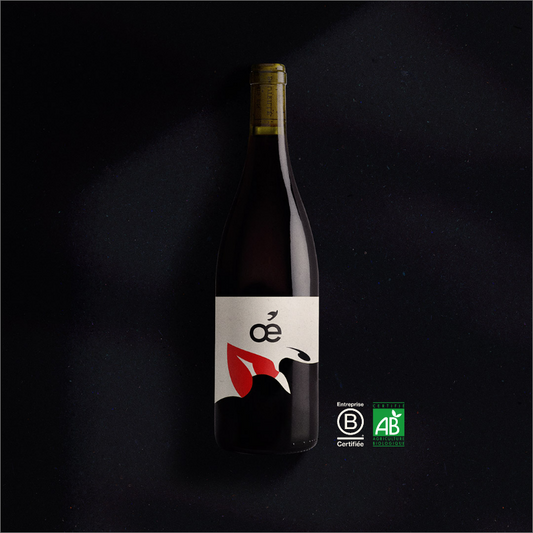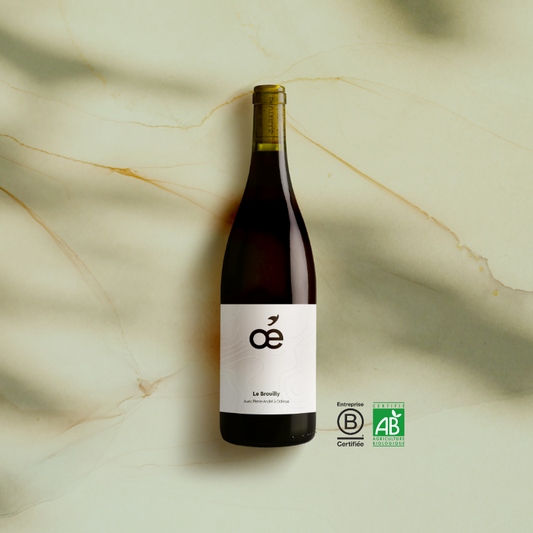After straws, cutlery and bags, single-use plastic should be hot in the buttocks in the years to come: France is starting a war against waste !
For 1 year now, a number of plastic products have been disappearing from our shelves and from our lives. The good news ! We eliminate toxic elements from our daily lives, and that, the AGEC law has understood. And since not everyone has the time to read the 40 pages of official documents on this law, we have taken on the task of deciphering it for you.

In a few words, what is the AGEC law?
AGEC stands for Anti-Waste and Circular Economy . In other words, this law is a step in the direction of “ consuming less and better” . A bit like what we do at Oé.
Overall, the law provides:
- the creation of new polluter-pays channels,
- the increase and (eventually) obligation to recycle plastics,
- and the creation and development of a circular economy.
The final objectives are set for 2040 (ah, yes anyway… that's a long way off). A schedule is available to anyone who wants a little more information.
Learn more about the 2040 goals!
Some of the actions were implemented as early as January 2020 and a number have been implemented since the start of 2022, including the star measure of the AGEC law : the ban on plastic over-packaging around unprocessed fruits and vegetables weighing more than 1.5 kg . Victoire !
At the center of this law, there is a real desire to better inform consumers so that they can make more informed choices in their purchases. And then between us, we wonder who could have launched this idea of plastic on fruits and vegetables… An aberration!
The main lines of the AGEC law
The ecological transition is at the center of this law because most of its measures will have more or less impact on the biodiversity that we love so much .
Getting rid of disposable plastic is essential to encourage people not to replace plastic with other packaging (which could also have an impact on nature).
Various quantified objectives, such as the obligation to have 20% of the supermarket sales area devoted to bulk on 1 January 2030, allow the gradual implementation of bulk of all kinds (as for Oé wines offered in bulk with our partner Jean Bouteille) and above all, the deposit ! Even if you might think that at Oé, the deposit is easy, it is far from being the case in practice. Just as we don't throw away granny china after each meal, we shouldn't throw away our containers after each use. With us, it goes through our bottles. At home, all your containers are reusable to store your couscous, pasta and seeds in bulk. There will therefore be the establishment of new channels for experimenting with instructions and support for reuse initiatives . So if you have a great idea for deposit and reuse, AGEC could be the boost you need.
Then we get down to business : setting up better information for consumers . Because if this law thinks of the waste producers and those who will take care of it, it also thinks of us.
No more 35 different selective sorting logos, no more " hey, Manon, you know if that goes in the yellow bin ? “, put an end to the doubt.
The new universal and unique Triman logo is coming in 2022. Thanks to it, it will now be impossible to say that sorting is difficult. Triman will tell you exactly what to put in which bin everywhere in France.
Finally, the law fights against waste and planned obsolescence. Among the many measures, one particularly caught our attention. Defenders of Apple and Samsung better watch out! Since January 2021, manufacturers have been required to provide information on the duration during which software updates allow normal use of devices.
What must be remembered is that we must produce better.
Better disposal of our waste does not solve the problem, it is only a temporary solution. We must create more sustainable products , products that respect the 3Rs : Reduce, Reuse and Recycle .
Every 5 years, the law provides for a decree that will set specific objectives that will lead, we hope, to the elimination of plastic packaging and who knows, maybe one day, short-term packaging . This objective intends to transform the functioning of the polluter-pays sectors between 2021 and 2023. The main change will be the sanctions that the eco-organizations can suffer if they do not respect the new objectives set by the AGEC law. Basically, they will have to ensure that the eco-design of products sold to consumers respects the indices of repairability, recyclability and reuse in force.
We will not hide our enthusiasm. These kind of steps forward are still too rare not to do a little dance of joy when they become reality. We are delighted to see that the government has realized that deposit and reuse are viable solutions for businesses seeking economic success.
This law estimates that the circular economy can create around 300 000 additional jobs in France . Awesome no ?
Let's still be realistic. For the moment, most of the obligations are not really binding for companies that could not, or would not wish to comply with them quickly. Economically speaking, it makes sense. But from an environmental point of view it is a bit disappointing. In addition, most measurements speak " of the objective of tending towards ". So when it's not required, it's not even a real goal. A bit like the carbon subject that we will talk to you about later in a future article. Not very SMART all that.
In summary, this initiative is great, but we are waiting to see the real effects on the daily life of the planet. We like for the effort.





